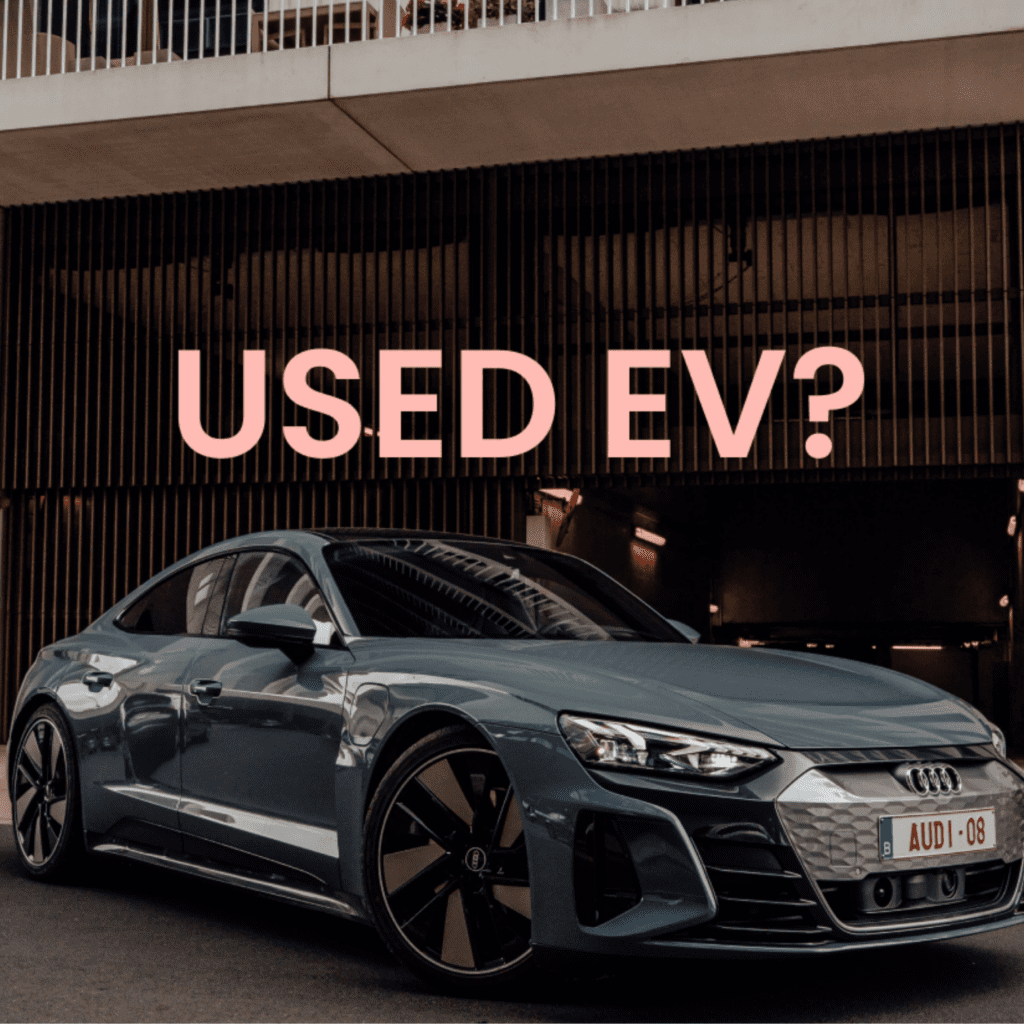Electric vehicles (EVs) have quickly become a popular vehicle choice for consumers. However, one of the factors that many consumers have hesitations about is the price of EVs. Electric cars are notoriously expensive, especially when brand new. Even though EVs have a higher sticker price than gas-powered cars, a few factors make EVs more affordable. Electric vehicles require less servicing and maintenance, have no fuel costs, and there are provincial and federal monetary incentives for new and used EVs. If you want to switch to electric but don’t want to break the bank, consider buying a used EV. This article will explain what to know before purchasing an EV and if you should buy a used EV.
Explore the world of electric ⚡️ with VINN’s tips for buying a used EV:
What to Look For When Buying a Used Electric Car
When you purchase a used car, you should consider the vehicle’s year, mileage, condition, and if it has a remaining warranty. You should consider the same factors and a few others when buying a used electric car. Electric vehicles get power from a large battery pack. Electric batteries are expensive, so it is important that you follow proper charging practices to prolong the battery’s life.
When you buy a used electric vehicle, you should look into the warranty coverage for the battery. The standard warranty for EV batteries is eight years or 160,000kms. Therefore, if you are buying a used EV that is over eight years old or 160,000kms, you should check with the dealership or private seller to see if the battery has been replaced or if any issues with the battery have occurred. Also, once your battery warranty expires, you should consider purchasing an extended warranty. Electric vehicle batteries can cost anywhere from $5,000 – $20,000.
What Is the Lifespan of an Electric Vehicle Battery?
The standard warranty for EV batteries is eight years, but it is predicted that an electric vehicle battery will last anywhere between 10 to 20 years. What happens with the battery is that it will begin to have reduced capacity, resulting in less range over time. Battery degradation is one of the most important topics that EV owners need to understand. By following proper charging practices and keeping your battery’s charge between 20% and 80%, you can help maintain the overall health of your EV’s battery.
Do Electric Vehicles Depreciate Quickly?
Unfortunately, most vehicles have a high rate of depreciation, which is one of the reasons why buying a used car or leasing can be seen as a better decision than financing a brand new vehicle. According to iSeeCars, new electric vehicles on average depreciate by 52 percent in the first three years. This depreciation rate is higher than new sedans (39 percent) and trucks (34 percent). Therefore, it is always wise to consider used vehicle options.
How Much Do Second-Hand Electric Cars Cost?
The growing popularity of electric vehicles means that almost every manufacturer now has EV models. You can explore electric SUVs, trucks, sedans, sports cars, and luxury vehicles. And now that EVs have been available for a while, there is a lot of used inventory. Second-hand electric vehicle prices will vary by year, make, model, and mileage. Used electric sedans and hatchbacks will range from $10,000-$85,000, and used electric SUVs will range from $40,000-$100,000. You may have some trouble finding a used electric truck as trucks are the newest vehicle model available in electric variations.
What Rebates Are Available for Used EVs?
One of the major advantages of purchasing or leasing an electric car is the federal and provincial government EV rebate/incentive programs. The federal government’s iZEV program is only available to purchase or lease new electric vehicles. However, most provinces offer used EV incentives:
- Ontario: $1,000
- Newfoundland and Labrador: $2,500
- New Brunswick: $2,500
- Nova Scotia: $2,000
- Prince Edward Island: $5,000
British Columbia: PST tax exemption for used all-electric, PHEVs, and hydrogen fuel-cell vehicles. Eligible EVs must have been driven at least 6,000kms and have a sales price between $55,000-$75,000.
Currently, Quebec, Yukon, and the Northwest Territories do not offer rebates for used EVs but do offer rebates for new EVs. And Alberta, Saskatchewan, and Manitoba do not provide any rebates for electric vehicles.
Find out what EV models qualify for federal and provincial electric vehicle incentives here.
How to Charge Your Electric Vehicle
Once you have purchased your used electric vehicle, you will need to know how and where to charge your car. You will be able to charge your EV at public charging stations, at home, or your condo/apartment complex. You should expect to do 80% of your charging at home and the other 20% at public charging stations. Therefore, you will need to have access to an at-home charging station. For home charging, you have two options:
- Level 1 (120-volt): Charging using a regular wall outlet.
- Level 2 (240-volt): Charging using an EV charging system.
- Level 3 chargers, also known as fast chargers, are usually found at public charging stations. Most provinces have EV charger station rebates that will help towards the costs of purchasing and installing a Level 2 (240-volt) charging station at your house.
Learn more about EV home charging and charge times here.
At VINN, we work directly with you to guide you through the process of finding a new car. Our vehicle experts will work with you to ensure that you get the best value for the right car, and you can also browse our inventory.
Happy driving! 🚘 Tell us about your favorite vehicles or fun car facts by tagging us on Instagram @vinncanada or Twitter @vinnauto.








